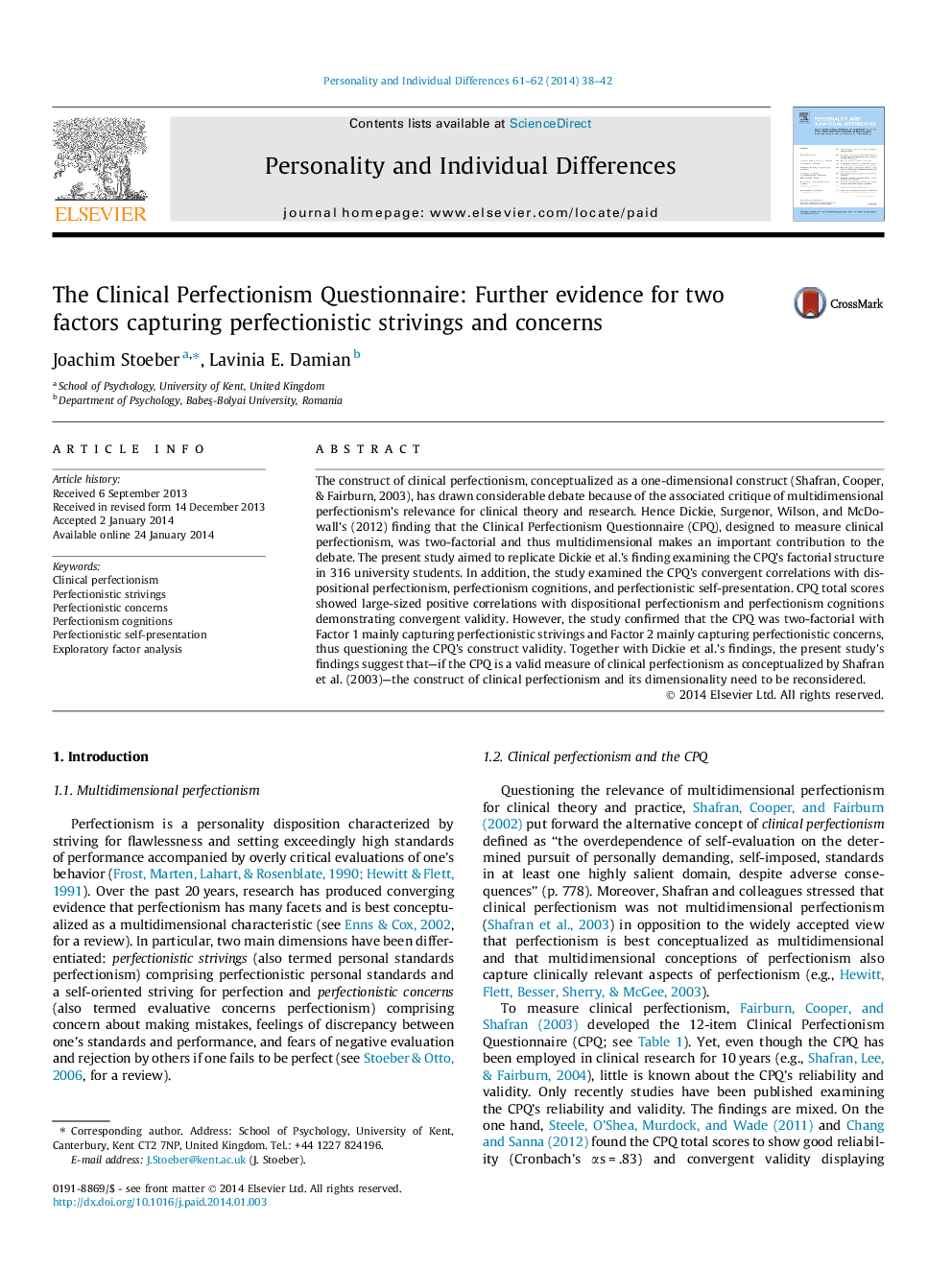| Article ID | Journal | Published Year | Pages | File Type |
|---|---|---|---|---|
| 890531 | Personality and Individual Differences | 2014 | 5 Pages |
•This study examined the Clinical Perfectionism Questionnaire (CPQ).•Exploratory factor analyses confirmed the CPQ’s two-factorial structure.•Factor 1 captured perfectionistic strivings, Factor 2 perfectionistic concerns.•The findings replicate and expand on Dickie et al.’s (2012) findings.•Implications for theory and measurement of clinical perfectionism are discussed.
The construct of clinical perfectionism, conceptualized as a one-dimensional construct (Shafran, Cooper, & Fairburn, 2003), has drawn considerable debate because of the associated critique of multidimensional perfectionism’s relevance for clinical theory and research. Hence Dickie, Surgenor, Wilson, and McDowall’s (2012) finding that the Clinical Perfectionism Questionnaire (CPQ), designed to measure clinical perfectionism, was two-factorial and thus multidimensional makes an important contribution to the debate. The present study aimed to replicate Dickie et al.’s finding examining the CPQ’s factorial structure in 316 university students. In addition, the study examined the CPQ’s convergent correlations with dispositional perfectionism, perfectionism cognitions, and perfectionistic self-presentation. CPQ total scores showed large-sized positive correlations with dispositional perfectionism and perfectionism cognitions demonstrating convergent validity. However, the study confirmed that the CPQ was two-factorial with Factor 1 mainly capturing perfectionistic strivings and Factor 2 mainly capturing perfectionistic concerns, thus questioning the CPQ’s construct validity. Together with Dickie et al.’s findings, the present study’s findings suggest that—if the CPQ is a valid measure of clinical perfectionism as conceptualized by Shafran et al. (2003)—the construct of clinical perfectionism and its dimensionality need to be reconsidered.
